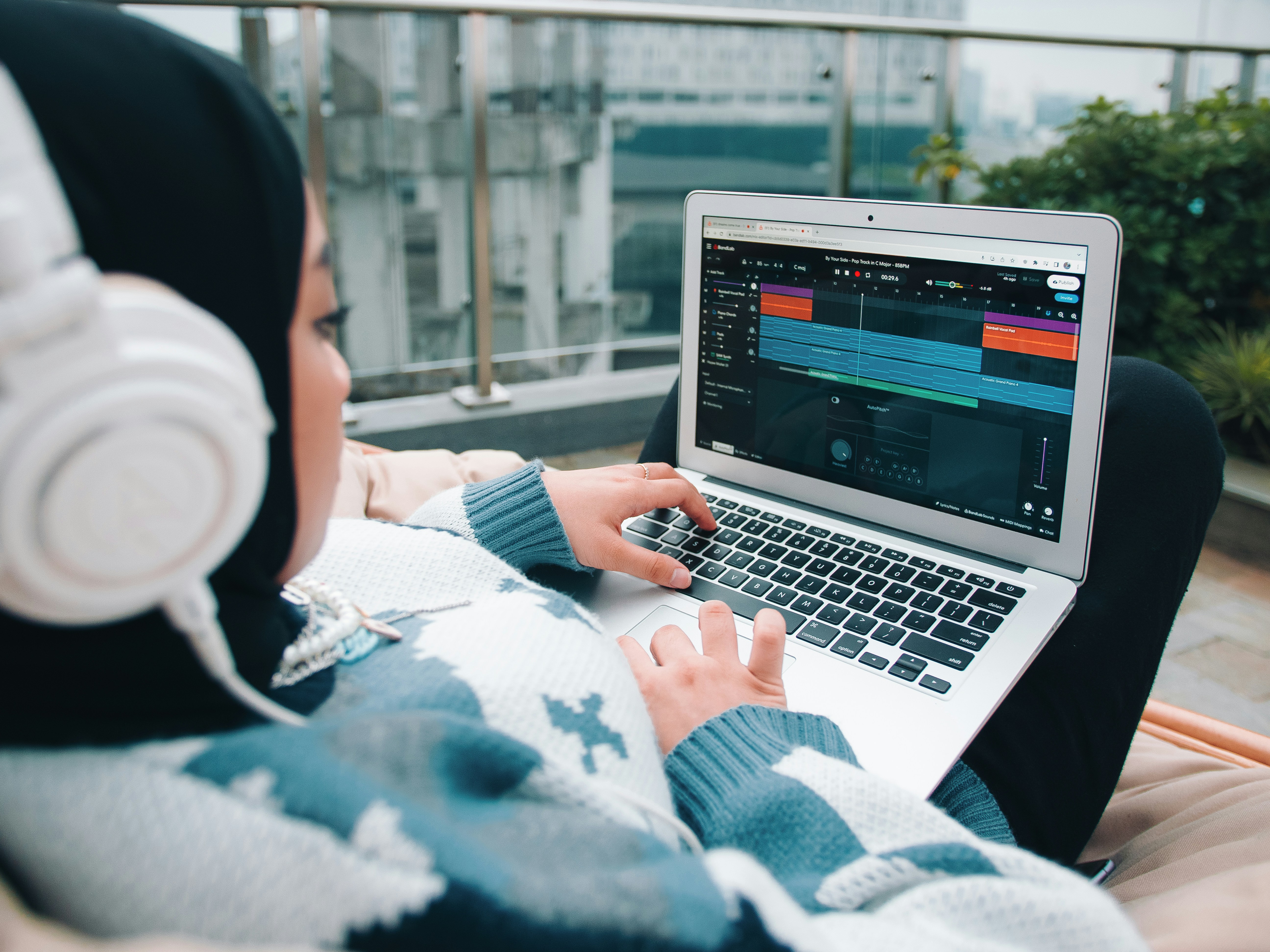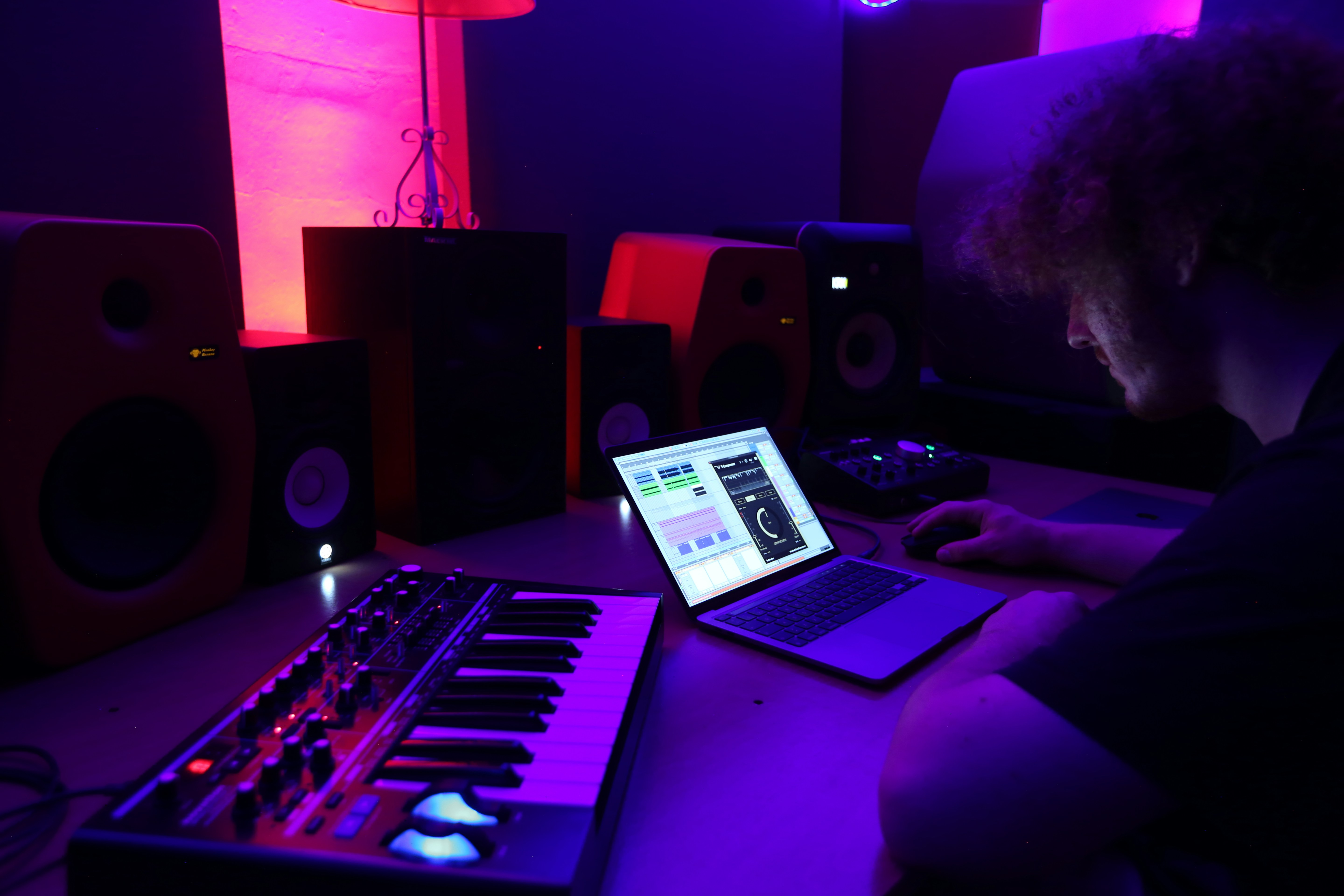8 DAW Comparison Tips to Find Your Perfect Music Match
by WriteSeen
Choosing the right DAW can be daunting for musicians eager to produce and share their sound. In this daw comparison, we break down essential tips and insights to help you find a digital audio workstation that matches your creativity and technical needs.
Skip the confusion and discover which DAW will truly enhance your music-making process by aligning with your preferred workflow and style.
1. Understanding DAW Basics for Musicians
As musicians, our creativity knows no bounds. But to bring those musical ideas to life, understanding the basics of Digital Audio Workstations (DAWs) is crucial. A DAW is the engine of modern music production, a digital playground where recording, editing, and mixing happen all in one place. It's about crafting your sound with finesse—from MIDI sequencing to audio processing.
These platforms provide a comprehensive suite of tools tailored to different workflows. Some ears crave the structured environment of traditional studio software, while others explore the vast landscapes of loop-based compositions. Musicians thrive when they harness a DAW that complements their unique style.
- MIDI Sequencing: Command sound precision by programming each note and dynamic nuance.
- Audio Recording and Editing: Record live instruments or vocals, then refine those takes to perfection.
- Mixing and Mastering: Balance individual sounds, create depth, and bring out the best in your tracks.
Amid evolving technology, updates like AI-powered tools and spatial audio enhancements continue to elevate our creative process. The key is finding a DAW that feels like a natural extension of your musical vision. This gives you the freedom to create, innovate, and refine your sound.

2. Comparing User Interfaces: Ease of Use
Every musician's workflow benefits from a user interface that empowers rather than hinders. When it comes to DAWs, a streamlined interface can dramatically boost your productivity and musical flow. Whether it's Ableton Live, Logic Pro, or FL Studio, understanding their design elements helps you decide which aligns best with your creative needs.
Ableton Live offers a minimalist interface with a unique session view, perfect for quick idea generation and live performance setups. Logic Pro provides a more conventional recording studio experience, delivering smooth recording and arranging tailored for professionals who appreciate detail. FL Studio stands out for its customization options—this flexibility is well-suited for electronic music producers.
- Ableton Live: Built for innovation with a focus on real-time creation.
- Logic Pro: Tradition meets technology, with features that facilitate intricate sound crafting.
- FL Studio: Tailor-made for electronic virtuosos who love to tweak and perfect.
A musician's DAW interface should resemble a co-pilot rather than an obstacle. Seamless design encourages you to dive right into creation without unnecessary learning curves, aligning your technical setup with your artistic flow.
3. Assessing Plugin and Instrument Support
Expanding your sound palette often hinges on plugin and instrument support. A DAW's native plugins offer a starting point, while third-party plugins let you delve deeper. Each DAW strikes a balance between built-in options and compatibility with an ever-growing selection of virtual instruments and effects.
Ableton Live's stock plugins balance quality with versatility, while Logic Pro's comprehensive library provides high-end soundscapes right out of the box. For producers in search of an expansive ecosystem, FL Studio offers unmatched support with both native and third-party plugins, opening doors to sonic experimentation.
- Ableton Live: Balances widespread compatibility with essential native innovations.
- Logic Pro: Delivers out-of-the-box luxury with industry-standard audio units.
- FL Studio: A vast repository of tools ensures every sonic need is met.
For musicians, choosing a DAW with robust plugin capabilities is like picking the right instruments in a well-stocked studio. It can transform how you bring melodies to life, offering limitless avenues to refine and elevate your music.
4. Multi-Platform Compatibility for Musicians
Today's musicians need flexibility—whether composing in a studio or performing live. Multi-platform compatibility ensures you can confidently switch between environments, maintaining steady workflow and creative momentum.
Ableton Live supports both Mac and Windows, offering a consistent experience across these platforms. Logic Pro excels within Apple's ecosystem, catering to users entrenched in the Mac world with effortless integration. Bitwig Studio's Linux support gives you freedom, especially if open-source ecosystems are your playground.
- Ableton Live: Steady across platforms, bridging creative domains seamlessly.
- Logic Pro: A Mac-exclusive powerhouse, ideal for those committed to Apple's ecosystem.
- Bitwig Studio: A unique offering for Linux enthusiasts looking for open-source solutions.
Selecting the right DAW is akin to ensuring all your tools can talk to one another—no matter the stage or setting. This compatibility reflects a commitment to continuity, crucial for musicians keen on exploring creative spaces without compromise.
5. Evaluating Performance and System Requirements
Performance and system requirements play a significant role in choosing a DAW that complements your hardware. A good match ensures smooth sailing during intensive sessions and reduces the risk of technical hiccups derailing creative euphoria.
Logic Pro thrives on Mac, optimizing CPU and memory usage for pristine performance. Ableton Live maintains a light resource footprint, making it suitable for both Windows and Mac systems. FL Studio is versatile, thriving even on mid-tier setups yet robust enough for demanding tasks.
- Logic Pro: A Mac-centric marvel tailored for maximum efficiency.
- Ableton Live: Cross-platform agility with a focus on resource efficiency.
- FL Studio: Adaptable for all levels, scaling performance with your growth.
Musicians deserve tools that sync effortlessly with their tech setup. It's not just about surviving a heavy mix session—it's about ensuring nothing stands in the way of pure creativity. Proper evaluation of DAW performance and system compatibility helps you maintain that harmony, keeping the music flowing and your vision on track.

6. Scalable Features for Growing Musicians
As your musical journey evolves, you need a DAW that grows alongside you. Scalable features can make all the difference, letting you start simple and expand as your projects become more sophisticated. Understanding these features helps you choose software that supports you from novice to pro.
Ableton Live offers various editions, building from essential to advanced tools without a steep learning curve. Logic Pro comes fully loaded with comprehensive capabilities ready for immediate professional use. FL Studio impresses with its lifetime free updates, ensuring you won't miss out on new innovations as they roll out.
- Ableton Live: Editions grow with your expertise, effortlessly scaling complexity.
- Logic Pro: Ready for all stages of musical growth—no upgrade needed.
- FL Studio: Continual evolution with guaranteed lifetime updates, no additional cost.
A DAW with scalable features respects your growth path. It's about ensuring that with each new musical milestone, your tools match your potential. This scalability mirrors the journey of a musician—ever-expanding, continuously reaching new heights.
7. Pricing and Value for Money
Understanding pricing structures is crucial for making an informed decision about which DAW delivers the best value for your money. By comparing free and paid options, and analyzing subscription models, you can find a DAW that aligns with your budget and your musical aspirations.
Ableton Live and FL Studio offer tiered pricing models, designed to let you invest according to your current needs while providing room to grow. Logic Pro offers a one-time purchase, making it a compelling choice for those looking for all-inclusive access without ongoing fees.
- Ableton Live: Fee structures that let you pay for what you need, upgrading as necessary.
- Logic Pro: Pay once and enjoy full access—an offering rich with lasting value.
- FL Studio: Tiered options plus lifetime updates is a great long-term investment.
Balancing cost with capabilities is about maximizing your returns. It's a reflection of striking a harmony between financial prudence and creative ambition, ensuring your DAW choice enhances, not hinders, your musical progression.
8. Community and Support: Learning and Troubleshooting
A supportive community and robust support structure are vital tools for mastering your DAW. Whether you're tackling a creative challenge or a technical hurdle, having access to resources makes a world of difference.
Ableton Live's community is vibrant and collaborative, perfect for sharing ideas and learning new techniques. Logic Pro benefits from Apple's extensive support network, providing a safety net of knowledge. FL Studio’s wealth of tutorials and forums creates a thriving environment for education and troubleshooting.
- Ableton Live: A thriving community encourages collaboration and peer learning.
- Logic Pro: Apple's support network ensures professional-grade assistance.
- FL Studio: Offers abundant learning resources and an active forum for dedicated support.
For musicians, navigating a DAW isn't just about software—it's about immersing yourself in a network that nurtures growth and innovation. By choosing a DAW with strong community and support systems, you're effectively surrounding yourself with the tools needed to thrive.
Choosing the Best DAW for Your Music Style
Your choice of DAW should reflect the music you create. Different genres demand different tools, and aligning your DAW capabilities with your artistic needs ensures you're giving your sound the best possible canvas.
- Electronic Music: Ableton Live's session view and real-time capabilities make it ideal for electronic enthusiasts.
- Classical Compositions: Logic Pro's sophisticated editing tools are perfect for detailed, layered pieces.
- Hip-Hop and Beat Production: FL Studio's pattern-based approach and flexible mixing environment cater specifically to beat-making.
When you tailor your choice of DAW to your music style, you empower yourself to turn creative visions into audible realities. It's about crafting a space where your music genre shines, enhancing creativity and technical accuracy.
Conclusion
Choosing the right DAW is a transformative milestone for any musician. Through this daw comparison, you've seen how user interfaces, plugin support, performance, and community shape your creative process. Remember, the best DAW is the one that empowers your unique style and vision.
Explore trial versions, experiment with different workflows, and trust your instincts as you find the perfect match. Your music deserves a DAW that feels like a true creative partner, evolving with you at every stage of your journey.
Ready to connect with other musicians, share your progress, and get real feedback as you refine your sound? Join WriteSeen today and be part of a creative community built to support your musical evolution.
TAGS